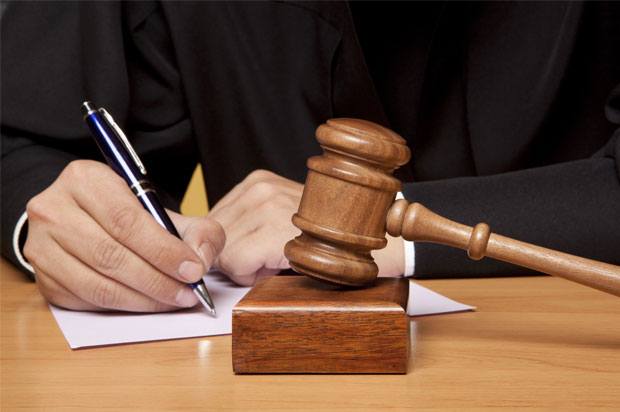Taking someone to small claims court
Does someone owe you money but won't pay up? You can take them to a small claims court to regain your cash (and your temper).

Try to sort out any disputes out of court first
What is a small claims court?
A small claims court is an offshoot of the County Court, and a place to settle a financial dispute if someone isn’t coughing up your cash.
Claims can be made to the tune of £10,000 or less for many reasons, including:
- Bad workmanship
- Damage to your property
- Road traffic accidents
- Goods not supplied
- Faulty goods, or
- Someone just owing you money
And claims can be made for £1,000 or less, when:
- You are making a personal injury claim, or
- You are claiming compensation from your landlord or want to force them to carry out necessary repair work to the property.
Ultimately, the small claims court is a good place to settle minor financial grievances without drawing upon expensive legal teams to front your case.
In Scotland, small claims are handled via the Sheriff’s Court, for sums up to £3,000. In Northern Ireland, the limit is £5,000. The following applies only to England and Wales.
How do I find a small claims court?
Check out your local phone directory, under Courts, or by contacting your local Citizens’ Advice Bureau. You can also start court proceedings online at money claim online.
To use the online service your claim must be against no more than two defendants and both you and the defendants must have an address in England or Wales where documents can be delivered. You’ll also need an email address and a debit or credit card.
How do I start a case?
First of all, there’s no point taking someone to court if you haven’t already tried sorting the problem using other methods. If you do not try and settle first, the court could penalise you. But if negotiations fail, here’s what to do.
If you’re 18 or over, then drop in to your local County Court and fill out a claim form. Alternatively register your details at moneyclaim.gov.uk and the site will generate a unique customer identification and password.
You’ll need to state:
- The name and address of the person/company you’re claiming against
- The amount you’re claiming and the reason why
- Whether interest is applicable (charged at 8% per annum)
- If it’s a personal injury claim, you’ll need an official medical report
If you fill in the claim at the court they’ll stamp it, give you a copy and send a copy to your opponent. They will be expected to fill in the details requested, and return the form to the court. If you use the online process the defendant will receive court papers in the post, but they’ll be able to enter their response online.
After that, if a hearing is necessary, the court will inform you of the date.
Often the whole case can be sorted out by correspondence, or the defendant may just cough up at the first whiff of legal letter heading. And if it does involve a real hearing, it won’t last more than a couple of hours, or a day at the max.
What happens if I win?
Your opponent will be bound to pay the compensation agreed by the judge, plus fixed costs (court fees, solicitor’s charges, travel expenses and loss of earnings.) However, if they’ve gone bust, or can’t pay, then you may not get your money.
If they don’t pay up then you might be able to send the bailiffs to their home to recover your money.
What happens if I lose?
You will not get your court fees back, and you could be liable to stump up for some of your opponent’s costs.
The bottom line is this – the small claims court can be an effective means of reclaiming your money (and your pride), but you have to be realistic about your chances of succeeding before you start puffing out your chest and vowing to strike down your opponent with great vengeance and furious anger.
Thanks to CAB for their help with the article.
Photo of judge’s hammer by Shutterstock
Next Steps
- Chat about this subject on our Discussion Boards.
By
Updated on 29-Sep-2015
No featured article














